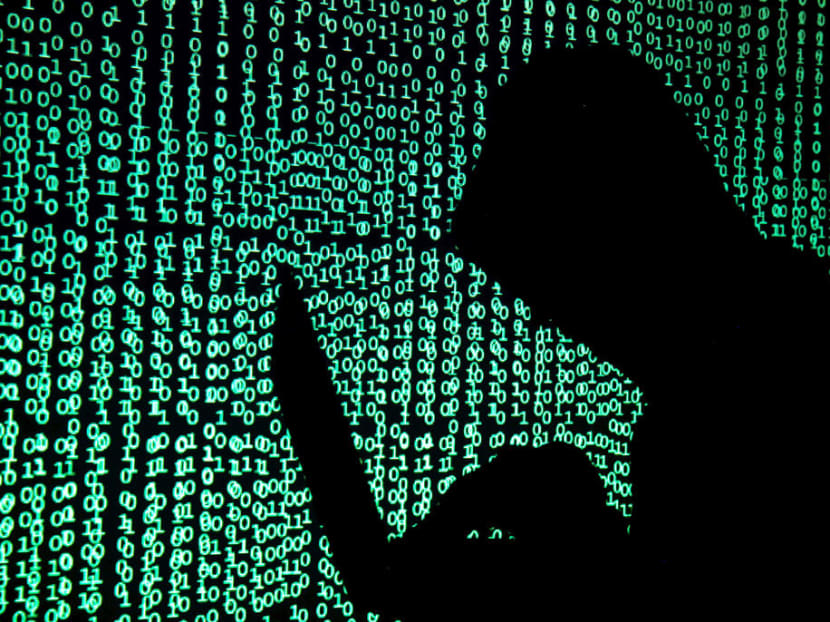Taiwan braces for Chinese meddling ahead of election
TAIPEI - Taiwan is bracing for a surge in Chinese influence operations ahead of upcoming elections after the ruling party’s website was hacked, in what experts said was the latest sign of Beijing’s willingness to exert power beyond its borders.

Taiwan is bracing for a surge in Chinese influence operations ahead of upcoming elections after the ruling party’s website was hacked.The source of the hack has not been announced but investigators believed it came from China.
TAIPEI - Taiwan is bracing for a surge in Chinese influence operations ahead of upcoming elections after the ruling party’s website was hacked, in what experts said was the latest sign of Beijing’s willingness to exert power beyond its borders.
The Democratic Progressive (DPP) party was probing how hackers breached the party’s website last Tuesday (July 3), a party official said. The source of the hack has not been announced but investigators believed it came from China, according to a person familiar with the matter.
The attack comes amid a jump in serious hacking incidents on the government and spreading of disinformation via social media ahead of local elections in November, Taiwan officials said.
The hack also follows allegations Russia used cyber tools to interfere in the 2016 United States election and showed Beijing was using cyber operations to undermine the DPP, experts said — the party has traditionally favoured independence for Taiwan.
“China’s desire to influence electoral outcomes in a manner that favours Beijing is hardly different than Russia’s use of cyber means to attain outcomes more favourable to the Kremlin in Crimea or the US,” said Ms Lauren Dickey, a Washington-based Taiwan analyst and a researcher at King’s College London.
Taiwan was now “on the front lines of cyber warfare, with hackers trying to steal information and spreading fake news to create dissent in Taiwan society”, said a spokesperson for President Tsai-ing wen.
“We anticipate in the run-up to elections at the end of this year and continuing until the 2020 presidential elections Taiwan will become a global hotspot for cyber attacks and fake news,” the spokesperson said.
Beijing, which claims Taiwan is part of its territory, has increased pressure on Taipei via military, diplomatic and other coercive measures since Ms Tsai and the DPP swept into power in 2016.
China’s tougher approach comes as Mr Xi Jinping, China’s president, acted nationalistically in response to domestic economic problems and closer ties between the US and Taiwan, said Mr Willy Lam, a China expert at the Chinese University of Hong Kong.
“They are turning to more overt measures and away from this old Deng Xiaoping axiom of ‘keep a low profile’,” Mr Lam said, referring to the former Chinese leader’s foreign policy.
DPP legislator Kolas Yotaka said party officials were swamped by a deluge of online trolling and fake news campaigns.
“It is scary, some people are brainwashed by this fake news,” she said.
Independent researchers said previous cyber and fake news attacks on Taiwan originated in China. Taiwanese cyber security officials said 90 per cent of serious hacking attacks on government departments came from China.
China’s People Liberation Army over the past year used fake news to manipulate public opinion in Taiwan by heightening fears over Chinese military drills, the University of Oxford’s Reuters Institute, said in a report last month.
In addition to state-backed propaganda, “there are also online harassment and trolling campaigns organised by what seem to be ordinary (Chinese) citizens”, another University of Oxford report found.
The operations did not match the sophistication of Russia’s campaigns but the Chinese government was using cyber space to influence Taiwanese society “in new and increasingly creative ways”, said Ms Danielle Cave, a senior analyst at the International Cyber Policy Centre at the Australian Strategic Policy Institute.
“This covert cyber interference — taking place across websites, social networks and mobile chat apps — will continue to increase,” Ms Cave said, adding, “governments from around the world should be watching what is happening in Taiwan incredibly closely.” FINANCIAL TIMES






